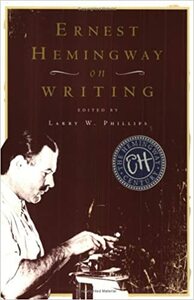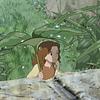Take a photo of a barcode or cover
inspiring
fast-paced
Continuing my summer obsession with Hemingway...this is a compilation of Hemingway's own words about writing...from interviews, from letters, and from Moveable Feast...One true sentence is there...so are several entries about bad words and how to use them to characterize...
Many entries are from letters to F Scott Fitzgerald...they must have corresponded for years. He was so frustrated with FSF's squandering his talents, and it shows. He rails at FSF to be true to his gift, to write from his heart, to trust himself. What a complicated friendship that must have been.
Several entries are about and to an author who wanted to write a biography of him. He absolutely hated the idea of having his personal life laid bare for all to see...while he was alive and able to read the book. I don't know what, if anything, happened to that particular book.
He writes about other authors and books he loved and hated.
I LOVED the entries about OLD MAN, my favorite book, the one I know best, since I've taught it so often. He laughs at the critics who read all kinds of symbolism into the book: The old man was an old man, the boy was a boy. The sharks were sharks...not, as he was told, literary critics.
Hemingway felt so competitive as an author...he gives other young authors the advice to read the old masters as a way of figuring out who they can 'beat'. Not a surprise for someone as fierce as he was.
I think the best entries came from an interview with George Plimpton. I love Plimpton's ability to disarm subjects and get them to open up...will track this piece down if I can.
I'll go back and collect all my highlighted passages...they're safe on the kindle for the moment. As so often happens, this book has inspired another purchase: The Selected Letters...I want to get to the source of that friendship with Fitzgerald...
My summer with Hemingway and Hadley and FSF has been so rewarding.
Many entries are from letters to F Scott Fitzgerald...they must have corresponded for years. He was so frustrated with FSF's squandering his talents, and it shows. He rails at FSF to be true to his gift, to write from his heart, to trust himself. What a complicated friendship that must have been.
Several entries are about and to an author who wanted to write a biography of him. He absolutely hated the idea of having his personal life laid bare for all to see...while he was alive and able to read the book. I don't know what, if anything, happened to that particular book.
He writes about other authors and books he loved and hated.
I LOVED the entries about OLD MAN, my favorite book, the one I know best, since I've taught it so often. He laughs at the critics who read all kinds of symbolism into the book: The old man was an old man, the boy was a boy. The sharks were sharks...not, as he was told, literary critics.
Hemingway felt so competitive as an author...he gives other young authors the advice to read the old masters as a way of figuring out who they can 'beat'. Not a surprise for someone as fierce as he was.
I think the best entries came from an interview with George Plimpton. I love Plimpton's ability to disarm subjects and get them to open up...will track this piece down if I can.
I'll go back and collect all my highlighted passages...they're safe on the kindle for the moment. As so often happens, this book has inspired another purchase: The Selected Letters...I want to get to the source of that friendship with Fitzgerald...
My summer with Hemingway and Hadley and FSF has been so rewarding.
I do so love Hemingway. So, obviously, I would love reading his words on writing as a process. There's something pleasing knowing he took his craft so seriously. And, now, I want to learn more about his relationship with F Scott Fitzgerald. This was the perfect book to read on my way to various classes in the mornings.
I love Hemingway and his outlook on literature. His perception is so inspiring; I loved this amalgamation of different pieces of advice he’s dropped throughout his writing.
Hemmingway fits all the presumptions I've made about his personality like a glove. All the stereotypes of the "Writer type" are on display here, for all their splendor and warts.
I love seeing Hemingway as the unabashed, ultra-competitive type. Like all writers, and I'm sure he'd admit himself, he seems up his own ass quite a bit, but that's part of his allure.
There's a bit of filler and enough quotes to make me roll my eyes, maybe one for every seven pages or so, but there's a lot of worthwhile advice and a few great quotes, ones I'm shocked I hadn't heard before as someone who used to hunt for quotes about writing to inspire me (I still do this, actually).
It is at least a little funny that there are multiple quotes from private letters about how he wished that a book like this (published excerpts of private correspondence) would never exist. And yet, here it is, sliding onto my bookshelf, covered in highlighter markings in the year 2021.
Because a lot of these snippets were private, I'm inclined to believe he means a lot of the things he says, but there is always the threat, as any writer who has spoken to another can tell you, that there's some grandstanding here to try and protect their own idea of themselves as well as their public perception. Maybe you come away from this book feeling like he spits at those types of people. I'll never be sure (Note, this has nothing to do with my ranking. Three stars is good! Goodreads tells me so!)
very helpful tips and nuggets of wisdom. will definitely be returning to this for inspiration in the future!
This slim volume is simply a collection of compiled quotes on writing from Hemingway's novels, stories, letters, interviews, etc. -- that's it. Main takeaways: war is the best subject to write about, Hemingway was an atrocious speller, and he had somewhat of an obsession about "beating" other writers.
I bought this book two years ago as a souvenir from the Hemingway House in Key West, which is well worth the visit even if you (like me) are not a big Hemingway fan. (This will likely be the last Hemingway that I read -- he's just not for me.) I'm not sure how useful Hemingway's thoughts will be to my own writing (and I don't think I had high expectations that they would be) but the book elicits a nice memory nonetheless.
I bought this book two years ago as a souvenir from the Hemingway House in Key West, which is well worth the visit even if you (like me) are not a big Hemingway fan. (This will likely be the last Hemingway that I read -- he's just not for me.) I'm not sure how useful Hemingway's thoughts will be to my own writing (and I don't think I had high expectations that they would be) but the book elicits a nice memory nonetheless.
Good random tidbits of advice on writing from Hemingway.
Gem of a book. Hands down. If you are even remotely interested in writing, read it. READ IT. I can't be louder. Read it. For if 'writing' was a person, then this could have been its autobiography.
This book won't tell how to write like Hemingway. In fact it won't help you to write like anyone. But what this book will do is tell you that if you'd feared writing, frustrated by it, felt mad writing for that one line (especially when you wrote so lyrically only a day back), had given up thinking that writing is not your cup of tea, then you are not different than Hemingway. Yes, all those fears and doubts that have haunted you as a writer, were felt by Ernest Hemingway, one of the best writers, himself.
Hemingway never wanted to write a book on writing. He considered it to be a bad luck -writing about writing. But in years of his discussions on his own writing, his letters to his friends giving his advice -he left a trail that when compiled in this book, does provide a definitive guide to a 'writing life'.
Not giving 5 because in the end it dealt with writing issues which were beyond me. But I'm surely going to reread it. And then, with more maturity as a writer, I am sure I would increase it to 5. (It won't go down for sure :) )
This book won't tell how to write like Hemingway. In fact it won't help you to write like anyone. But what this book will do is tell you that if you'd feared writing, frustrated by it, felt mad writing for that one line (especially when you wrote so lyrically only a day back), had given up thinking that writing is not your cup of tea, then you are not different than Hemingway. Yes, all those fears and doubts that have haunted you as a writer, were felt by Ernest Hemingway, one of the best writers, himself.
Hemingway never wanted to write a book on writing. He considered it to be a bad luck -writing about writing. But in years of his discussions on his own writing, his letters to his friends giving his advice -he left a trail that when compiled in this book, does provide a definitive guide to a 'writing life'.
Not giving 5 because in the end it dealt with writing issues which were beyond me. But I'm surely going to reread it. And then, with more maturity as a writer, I am sure I would increase it to 5. (It won't go down for sure :) )







